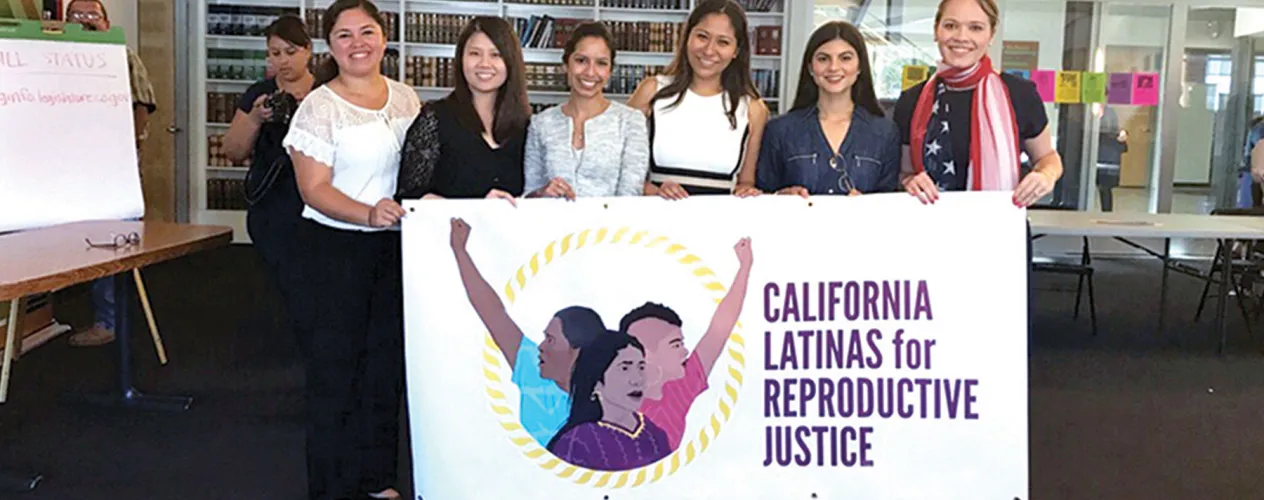Raising Community Voices
As a policy fellow with California Latinas for Reproductive Justice, FSPH student Anna-Michelle McSorley worked with Latina women advocating for health rights.

“As community health workers we can be allies, helping people navigate the process.”
— Anna-Michelle McSorley
AT A CALIFORNIA LATINAS FOR REPRODUCTIVE JUSTICE (CLRJ)-hosted screening of No Más Bebés — a documentary detailing the sterilization without consent of immigrant women at a Los Angeles County hospital in the 1960s and ’70s — attendees shared their lived experiences and discussed the power of advocacy to enact change. As shown in the documentary, while the women lost a subsequent class-action lawsuit, their efforts succeeded in bringing about sweeping changes to policies around informed consent.
“No one should have to go through what these women experienced,” says Anna-Michelle McSorley, a second-year MPH student in the Fielding School’s Department of Community Health Sciences who conducted her field studies with CLRJ, a Latina-led community-based organization focused on advocacy, research, education and encouraging members of California’s Latina community to engage in the policy process.
A policy fellow placed with CLRJ as part of FSPH’s UCLA Public Health Training Program on Population Health Advocacy, McSorley spent nine months with the grassroots organization helping to advocate for the reproductive rights of Latina women in California through work that included delivering trainings on the basics of reproductive justice, California’s policymaking process and effective advocacy strategies. She co-coordinated ¡California Latinas Presente! A Political Week of Action, a 2017 campaign that successfully recruited approximately 100 Latinas to participate in STUDENT ACTIVISM legislative visits with their state and federal representatives. During these visits, community members shared their stories and stressed the importance of affordable health coverage, as well as the need for accessible, comprehensive reproductive health services. McSorley also helped to advance CLRJ’s community advocacy by fighting for the passage of protections such as the Reproductive Health Non-Discrimination Act, which sought to protect California employees from workplace discrimination based on their reproductive health care decisions; and CalWORKs: Victims of Abuse, to support survivors of domestic violence.
For the majority of participants in CLRJ’s advocacy week, it was the first time they had engaged with their representatives in this way, and many reported feeling empowered to continue participating in the legislative process. That’s a credit to the multitude of “Policy 101” and “Know Your Rights” trainings offered by McSorley and CLRJ, and to efforts to keep participants engaged through documentary screenings, community events and workshops such as zines and cafecitos, which provide welcoming spaces to speak and be heard, helping to make advocacy work more accessible.
“To be an advocate for change and engage in the policy process is empowering, especially in the context of working within communities that experience disparities and often lack access to vital health information,” McSorley says. “As community health workers we can be allies, helping people navigate the process and serving as advocates alongside them.”